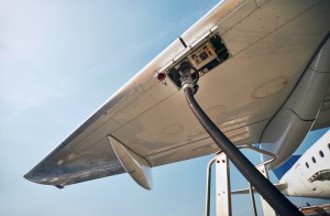
The International Air Transport Association (IATA) reacted to the political agreement reached in the EU trilogue on ReFuelEU. The agreement sets out the high-level expectations for use of Sustainable Aviation Fuel (SAF) from flights within and departing the EU between 2025 and 2050.
Some of the key elements of the agreement include:
- Setting of mandates for minimum SAF uplift at EU airports of 2% by 2025, 6% by 2030 and 20% by 2035, up to a maximum of 70% by 2050. Of these amounts, 1.2% in 2030, and 5% in 2035 must be power to liquid (PtL) or E-Fuels, increasing to 35% by 2050.
- A requirement for the Commission to report by 2024 on the feasibility of a Book and Claim (B&C) system for airlines to manage the supply of SAF in a flexible way across the EU.
- A call for States to adhere to a single EU SAF mandate and avoid a patchwork of national SAF mandates.
Conrad Clifford, IATA Deputy Director General, said:
“This agreement provides important clarity on expected future SAF levels in the EU, and we thank the EU Parliament and Member States for their work with the Commission. While mandates for SAF use send a signal to producers and the market, without a comprehensive policy framework to incentivize cheaper production and more flexible rules of supply, mandates alone simply risk a huge increase in cost and a license to print money for fuel suppliers, while raising the price of mobility throughout the EU.
At minimum, it is essential that a book and claim system be established to create a flexible market for SAF across the EU. We expect that the report the Commission will produce will confirm this. The reality is that the Commission have already conceded that supply will be uneven across the EU, which therefore makes it all the more essential to have a proper B&C system in place before the 2% mandate comes into force. Alongside expert stakeholders, IATA is working on a robust global framework for applying a harmonized B&C system for the aviation industry, and we hope to work together with the Commission to apply this framework in the EU.
The establishment of a ‘SAF fund’ to redistribute fines and some ETS revenues into encouraging more SAF production is a welcome proposal, but there is scope to do more. The Inflation Reduction Act in the United States shows the power of significant incentives in driving production. Without similar firepower being deployed in the EU, the EU faces having to import SAF in order to meet its own targets, increasing costs and diminishing the environmental gains.”
For more information, please contact:
Corporate Communications
Tel: +41 22 770 2967
Email: corpcomms@iata.org
Notes for Editors:
- IATA (International Air Transport Association) represents some 350 airlines comprising over 80% of global air traffic.
- You can follow us on X for announcements, policy positions, and other useful industry information.
- Fly Net Zero

